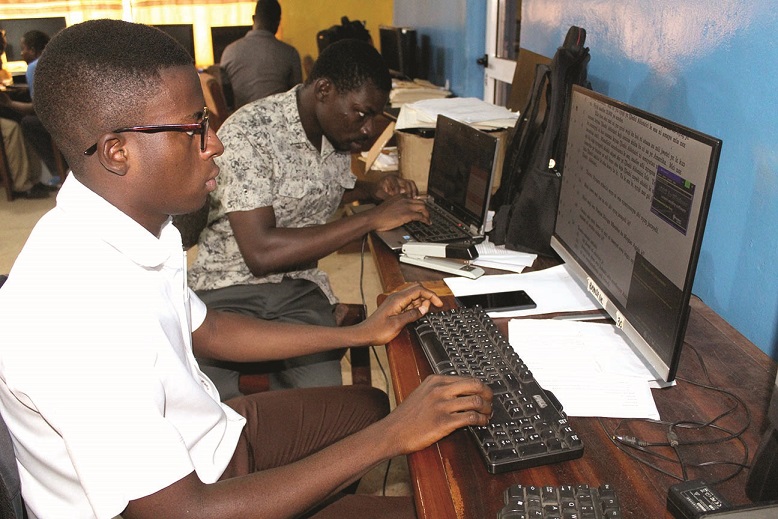Latest Ghana News Headlines Today

Provide us assistive technology — Visually impaired students
Assistive technology is software or device that help those who are visually impaired read printed material or surf the web.
The devices will give the visually impaired some of the opportunities available to students with no such challenges.
Those devices, they explained, would also help them compete fairly with students who had no visual impairment.
They said electronic forms of reading and writing, such as the use of computers, laptops, tablets and smart phones, were necessary to enable them to correct mistakes during examinations, especially external ones which they wrote with sighted students who had the opportunity to do that.
“With the Braille, you can’t correct mistakes easily. If you make a mistake, you either have to rewrite the whole question to correct just one mistake or let it go and lose marks,” an SHS Two student, Asante Osei Opare, said in an interview in Akropong in the Eastern Region.
He said with the electronic forms, they would be able to correct mistakes, listen to audio versions of textbooks and story books, as well as do more research to make studying easier and more effective.
The School Prefect, Gabriel Doe Kpalam said using Braille was tedious and time consuming, but with a software like the Keyboard Learner, which is faster and easier to use, studying would be simpler.
Sharing his experience with the Junior Graphic, Gabriel said: “I lost my sight when I was in SHS Two at the St Peter’s SHS at Nkwatia-Kwahu. I was then introduced to the Braille and at that time I thought the world had come to an end for me.
“That was because the Braille was quite difficult to grasp, but when I was introduced to the computer, my world became brighter again, as it was easier. Now I think I can do just about anything that a sighted person can do and will be able to realise my dream of becoming a lawyer, so we need more electronic devices to give us hope.”
Ruth Mussu, who is in SHS One, said they were allowed to use computers in class and during examinations, but those who used their own computers were those who could afford them.
“Most visually impaired students are poor and, therefore, do not have their own electronic devices, so they have to fall on the ones provided by the school, which are not enough. So during examination, while some use the Braille, others use computers and laptops, meaning that even among us, some are more disadvantaged,” she added.
The Headmaster of the Okuapeman School, Mr Obuobi Atiemo Akuffo, said although Braille was the commonest means by which the visually impaired could read and write, it was rapidly being superseded by spoken versions of the same material and other electronic forms.
He said since visually impaired students were taught together with sighted ones, it was important for them to also get audio versions of what they were taught, instead of relying on their friends to read to them.
The Head of Department of the Resource Centre of the Visually Impaired at the school, Mr Seth Kwame Ativor, said the Braille was, among others, bulky, expensive, limiting and difficult to store, noting that the computer would address all those challenges.
He said the electronic forms of reading and writing would give the students more opportunities in terms of employment because they would be able to write their reports using computers and not in Braille, which would be difficult for their employers to understand.
For his part, the Director of the Blind Union, Dr Peter Obeng-Asamoa, said advances in assistive technology had made it increasingly possible for people who were visually impaired to study, compete and communicate on an equal basis with their sighted peers and said it was beneficial right from basic school to the tertiary level in the country.
He was, however, hopeful that the all-inclusive educational policy of the government would make it easier for visually impaired students to have access to assistive technology to make them study effectively.

